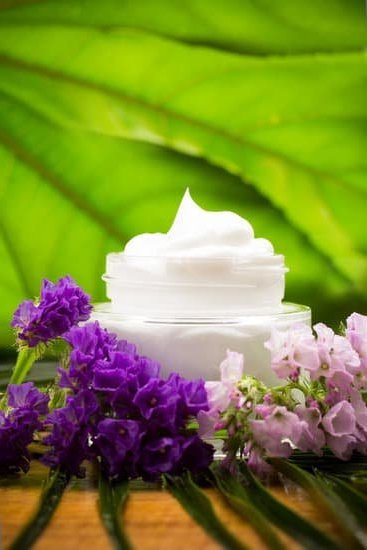Stress relieving aromatherapy oils are becoming increasingly popular in today’s fast-paced world as more people seek natural and holistic ways to unwind and relax. Aromatherapy has long been recognized for its ability to reduce stress, anxiety, and promote overall well-being through the use of essential oils derived from plants. The powerful scents of these oils can have a direct impact on our emotions and mental state, making them a highly effective tool for managing stress.
In this article, we will delve into the science behind how aromatherapy oils work to reduce stress and explore the top 5 stress relieving aromatherapy oils and their unique benefits. From lavender to peppermint, these essential oils have been studied for their calming properties and ability to promote relaxation. Additionally, we will discuss how to use aromatherapy oils effectively for stress relief, whether through diffusers, massages, baths, or other methods that can optimize their therapeutic effects.
Furthermore, we will explore DIY aromatherapy oil blends for stress relief and different ways to incorporate these oils into your daily routine for maximum benefits. By understanding the connection between the sense of smell and stress relief, you can harness the power of aromatherapy oils to create a more harmonious environment for your mind and body.
However, it is important to consider precautions and guidelines when using these potent oils to ensure safe and effective usage for a stress-free life. Stay tuned as we uncover the secrets of utilizing aromatherapy oils as a powerful tool in combating everyday stressors.
The Science Behind How Aromatherapy Oils Work to Reduce Stress
Aromatherapy has been used for centuries as a natural way to help alleviate stress and promote relaxation. The power of aromatherapy lies in the aromatic compounds found in essential oils, which can have a direct impact on brain activity and emotions.
When inhaled, these aromatic molecules can stimulate the olfactory system, sending signals to the brain’s limbic system – the area responsible for emotions, memories, and behaviors. This process can trigger various responses in the body, including relaxation, stress relief, and improved mood.
Neurotransmitters and Aromatherapy
Research has shown that certain essential oils used in aromatherapy can affect the production of neurotransmitters like serotonin, dopamine, and norepinephrine. These neurotransmitters play a crucial role in regulating mood and emotions. For example, lavender essential oil has been found to increase serotonin levels in the brain, leading to feelings of calmness and relaxation. Similarly, citrus oils like bergamot have been shown to boost dopamine production, which can enhance feelings of happiness and well-being.
Stress Response and Aromatherapy
One of the ways aromatherapy oils work to reduce stress is by influencing the body’s stress response. When we experience stress, our bodies release cortisol – a hormone that triggers the body’s fight-or-flight response. Certain essential oils like chamomile or rosemary have properties that help lower cortisol levels when inhaled or applied topically.
By reducing cortisol levels, these oils can help promote relaxation, reduce anxiety, and improve overall well-being. In addition to affecting hormones like cortisol, some aromatherapy oils also possess adaptogenic properties that can help the body adapt to stress more effectively over time.
Top 5 Stress Relieving Aromatherapy Oils and Their Benefits
Aromatherapy has been utilized for centuries as a natural way to promote relaxation, reduce stress, and improve overall well-being. Essential oils extracted from various plants are known for their therapeutic properties that can help calm the mind and body. When it comes to stress relief, there are certain essential oils that stand out for their powerful benefits.
One of the top stress relieving aromatherapy oils is lavender oil. Known for its calming and soothing properties, lavender oil is often used to help alleviate anxiety, promote better sleep, and reduce tension. Its floral scent can create a sense of relaxation and tranquility, making it an ideal choice for those looking to unwind after a long day.
Another popular essential oil for stress relief is chamomile oil, particularly Roman chamomile. This gentle oil has a sweet, apple-like aroma that can help calm nerves and ease feelings of irritability or restlessness. Chamomile oil is also known for its anti-inflammatory properties, which can help relax muscles and reduce physical tension associated with stress. Incorporating chamomile oil into your aromatherapy routine can bring about a sense of peace and emotional balance.
In addition to lavender and chamomile oils, other effective stress relieving aromatherapy oils include bergamot oil, ylang-ylang oil, and frankincense oil. Bergamot oil has a citrusy scent that is uplifting and refreshing, helping to boost mood and alleviate feelings of sadness or fatigue. Ylang-ylang oil is prized for its sensual and exotic fragrance that can promote relaxation and enhance feelings of positivity.
Frankincense oil has a warm, woody aroma that is grounding and centering, making it beneficial for calming the mind during times of stress or overwhelm. By incorporating these top 5 stress relieving aromatherapy oils into your daily routine through diffusers, baths, massages, or DIY blends, you can harness their potent benefits for a more balanced and stress-free life.
How to Use Aromatherapy Oils Effectively for Stress Relief
Aromatherapy oils have gained popularity for their stress-relieving properties, offering a natural and holistic approach to managing daily tension and anxiety. There are various methods of using these oils effectively to alleviate stress, from diffusers to massages and baths, each providing unique benefits for relaxation and calming the mind.
Diffusers
One of the most common ways to use stress relieving aromatherapy oils is through diffusers. These devices disperse the essential oils into the air, allowing you to inhale their therapeutic properties. By adding a few drops of your favorite oil, such as lavender or chamomile, into a diffuser, you can create a calming atmosphere in your home or workspace, promoting relaxation and reducing stress levels throughout the day.
Massages
Another popular method for using aromatherapy oils for stress relief is through massages. Diluting essential oils with carrier oils like coconut or jojoba oil and applying them topically during a massage can help release muscle tension, promote circulation, and provide a sense of well-being. Oils like eucalyptus or peppermint are known for their soothing effects on both the body and mind, making them ideal choices for massage therapy aimed at reducing stress.
Baths
Taking a warm bath infused with stress relieving aromatherapy oils can be a luxurious way to unwind after a long day and melt away tension. Adding a few drops of relaxing oils such as ylang-ylang or bergamot to your bathwater can create a spa-like experience at home while helping you destress and calm your nerves.
The combination of warm water and aromatic oils can soothe both the body and mind, making it an effective method for promoting relaxation and reducing feelings of stress.
DIY Aromatherapy Oil Blends for Stress Relief
Aromatherapy oils have long been used as a natural remedy for stress relief, harnessing the power of scents to calm the mind and body. Creating your own DIY aromatherapy oil blends can be a personalized way to combat stress and promote relaxation. By combining different essential oils known for their stress-relieving properties, you can create a blend that suits your preferences and needs.
Here are some popular stress relieving aromatherapy oils that you can use to create your own blends:
- Lavender: Known for its soothing and calming properties, lavender is a popular choice for promoting relaxation and reducing anxiety.
- Chamomile: Chamomile has a gentle scent that can help ease tension and promote a sense of tranquility.
- Bergamot: With its citrusy aroma, bergamot is uplifting and can help alleviate feelings of stress and fatigue.
Creating your own DIY aromatherapy oil blends is easy and can be tailored to suit your personal preferences. You can experiment with different combinations of essential oils to find the perfect blend that helps you unwind and relax after a long day. Whether you prefer floral scents like lavender or citrusy notes like bergamot, there are endless possibilities for creating custom blends that cater to your specific needs.
Using these stress relieving aromatherapy oils in combination with carrier oils like sweet almond or jojoba oil can further enhance their benefits. Whether you choose to diffuse the blend in a diffuser, add it to your bath water, or apply it during a relaxing massage, incorporating aromatherapy oils into your daily routine can be a simple yet effective way to promote overall well-being and reduce stress levels.
Different Ways to Incorporate Aromatherapy Oils Into Your Daily Routine for Maximum Benefits
Aromatherapy oils are powerful tools that can help alleviate stress and promote relaxation in our daily lives. Incorporating these stress-relieving oils into your routine can have a significant impact on your overall well-being. One popular way to enjoy the benefits of aromatherapy oils is through diffusers. Diffusers disperse the essential oils into the air, allowing you to breathe in the calming scents and experience their therapeutic effects.
Another effective way to incorporate aromatherapy oils into your daily routine is through massages. Mixing a few drops of your favorite stress-relieving oil with a carrier oil like coconut or almond oil can create a soothing massage blend. This not only helps to relax your muscles but also allows the calming properties of the essential oil to be absorbed through your skin, promoting a sense of peace and tranquility.
Additionally, adding a few drops of stress-relieving aromatherapy oils to your bath can turn it into a luxurious spa-like experience. The warm water helps to release the scent of the essential oils into the air, creating a calming atmosphere that can wash away the stresses of the day. This simple self-care practice can help you unwind and recharge, making it an essential part of any stress-relief routine.
| Benefits | Effective Ways |
|---|---|
| Promotes relaxation | Diffusers |
| Alleviates stress | Massages |
| Calm mind and body | Baths |
The Connection Between the Sense of Smell and Stress Relief
The olfactory system, which is responsible for our sense of smell, is directly linked to the part of our brain that regulates emotions, including stress. Aromatherapy oils can have a powerful impact on our emotional state through the stimulation of specific scent receptors in the brain. When certain aromas are inhaled, they can trigger the release of neurotransmitters like serotonin and dopamine, which are known to promote feelings of calm and relaxation.
Here are some key ways in which the connection between the sense of smell and stress relief can be harnessed through the use of stress relieving aromatherapy oils:
- Inhaling the aroma of lavender oil has been shown to reduce stress levels by lowering heart rate and blood pressure.
- The scent of bergamot oil has mood-lifting properties that can help alleviate anxiety and stress.
- Citrus oils like lemon and orange can provide an instant mood boost by increasing alertness and reducing feelings of tension.
By incorporating these stress relieving aromatherapy oils into your daily routine, whether it’s through diffusing them at home or adding a few drops to your bath or massage oil, you can effectively harness the power of scent to support your overall well-being. Additionally, creating personalized DIY blends with your favorite aromatherapy oils allows you to tailor your experience based on your specific stress relief needs.
Precautions and Considerations When Using Aromatherapy Oils for Stress Relief
When using aromatherapy oils for stress relief, it is important to take certain precautions and considerations to ensure their safe and effective use. While these oils can be powerful allies in promoting relaxation and reducing stress, they are also potent substances that should be handled with care.
One key consideration when using stress-relieving aromatherapy oils is to always dilute them properly before applying them to the skin. Essential oils are highly concentrated plant extracts and can cause skin irritation or sensitivity if applied directly without being diluted with a carrier oil. It is recommended to mix essential oils with a carrier oil such as coconut, almond, or jojoba oil before use.
Furthermore, it is important to perform a patch test before using any new essential oil on your skin, especially if you have sensitive skin or allergies. Apply a small amount of diluted oil on a small area of skin and wait 24 hours to check for any adverse reactions.
If redness, itching, or irritation occurs, discontinue use immediately. It’s always advisable to consult with a qualified aromatherapist or healthcare provider before incorporating new essential oils into your stress relief routine, especially if you have any underlying medical conditions or are pregnant.
Another precaution to keep in mind when using aromatherapy oils for stress relief is to never ingest them unless under the guidance of a qualified healthcare practitioner. While many essential oils are safe for external use in aromatherapy practices, ingesting them can be harmful and even toxic in some cases.
Always follow proper guidelines and dosage recommendations when using essential oils internally. By taking these precautions and considerations into account, you can safely harness the power of stress relieving aromatherapy oils for your overall well-being and relaxation needs.
Conclusion
In conclusion, the use of stress relieving aromatherapy oils offers a natural and effective way to combat the daily pressures of modern life. By harnessing the power of essential oils that are known for their calming and relaxing properties, individuals can find relief from stress and anxiety in a holistic manner. The science behind aromatherapy oils reveals how these potent substances can positively impact our mental well-being, making them a valuable tool in our self-care routines.
Whether it’s lavender for its soothing effects, peppermint for its invigorating qualities, or chamomile for its tranquilizing properties, the top 5 stress relieving aromatherapy oils provide a wide range of benefits to help ease tension and promote relaxation. By incorporating these essential oils into our daily lives through diffusers, massages, baths, or DIY blends, we can create personalized rituals that cater to our individual needs and preferences for stress relief.
Furthermore, as we explore different ways to incorporate aromatherapy oils into our daily routines, it becomes evident that the connection between our sense of smell and stress relief is profound. The use of these scents not only impacts our mood and emotions but also has the potential to alleviate physical symptoms associated with stress.
However, it is important to exercise caution and considerate usage when utilizing aromatherapy oils to ensure maximum benefits without any adverse effects on health. By taking these precautions and embracing the therapeutic properties of stress-relieving essential oils, we can cultivate a more balanced and harmonious lifestyle free from the burdens of stress.
Frequently Asked Questions
What Essential Oil Is Best for Stress?
Lavender essential oil is commonly recommended for stress relief due to its calming and relaxing properties. It has been shown to reduce anxiety levels and promote relaxation, making it an excellent choice for managing stress in various situations.
What Essential Oils Make Stress Away?
Another essential oil known for its stress-relieving benefits is chamomile. This gentle and soothing oil can help promote relaxation, ease tension, and create a sense of calmness. Its sweet aroma is often used to unwind after a long day or during times of heightened stress.
How Do You Release Stress From Your Body?
There are several effective ways to release stress from the body. One approach is through physical activity such as exercise or yoga, which can help reduce muscle tension and increase endorphin levels.
Deep breathing techniques, mindfulness meditation, and progressive muscle relaxation are also helpful practices to alleviate stress and promote relaxation. Additionally, engaging in activities you enjoy, spending time in nature, and maintaining a balanced lifestyle with proper sleep and nutrition can contribute to overall stress reduction.

Are you looking for a natural way to improve your health and wellbeing?
If so, aromatherapy may be the answer for you.





